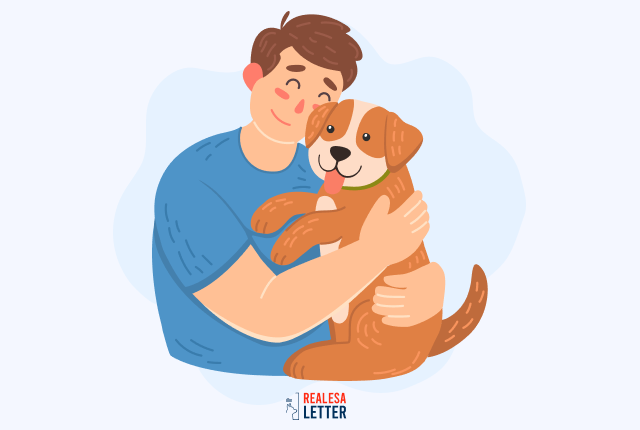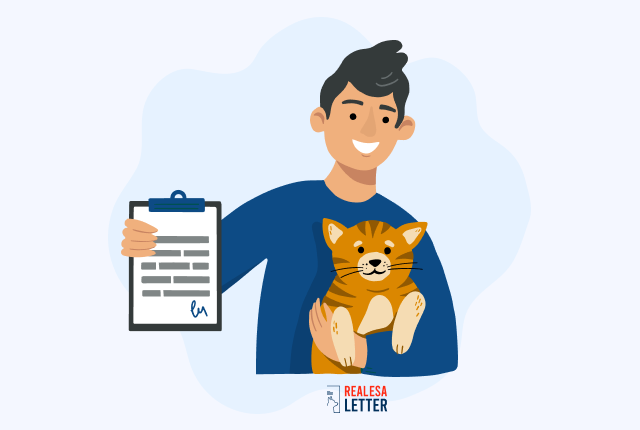Do you know that anxiety disorder could hinder a person’s ability to function and live a normal life? While it is a normal emotion, some people may experience it more than normal people, and as a ‘high functioning anxiety’.
Usually, there could be a number of reasons and causes for it. This could also be stress due to work, family, kids, or other reasons. Normally, the phase lasts for a few minutes or a couple of hours and people go back to being normal.
However, this disorder is different. When it comes to treating the disorder, there are a number of options for it.
In this blog, we will explain its symptoms and the disorder, when you should see a doctor, and some treatment methods.
Anxiety - An Overview
To define anxiety, according to the American Psychiatric Association, it is a normal human emotion that converts into feelings of stress. These could lead to a number of physical changes also and may cause high blood pressure and other negative symptoms.
While a little of it is considered normal and a part of life, the disorder is severe and needs medical attention. How to know if what you are experiencing is in a normal range or a disorder?
Below, we have explained some common symptoms of normal and dangerous levels of anxiety.
| Everyday/Normal Anxiety | Anxiety Disorder |
| Worrying about everyday things like paying the bills, managing relationships, coping with a breakup, and career advancement | Constant worrying that is caused due to lesser important things and events, which interfere with daily activities |
| Self-consciousness or uncomfortable feeling in a social gathering or situation | Avoiding social gatherings altogether due to the intense fear of embarrassment |
| Being nervous before a big and significant event like a presentation, a test, an interview, or any other important event | Being nervous all the time, having panic attacks anytime and anywhere, and constant fear of getting the attack again |
| Realistic or normal fear of something dangerous like an animal, situation, or an object | Nonsensical fear of ordinary and seemingly harmless objects and situations |
| Sadness, stress, and disturbed sleep after a traumatic event like the loss of a loved one | Constant nightmares, flashbacks, and difficulty in sleeping due to an event that happened several months or even years before |
When anxiety persists and the condition of the person worsens then it takes up the form of a disorder. There could be a plethora of reasons due to which people experience and suffer from it.
What is Generalized Anxiety Disorder?
Generalized Anxiety Disorder (GAD) is a severe and more serious form of anxiety, also known as chronic anxiety neurosis. It is characterized by excessive and constant worrying and stressing over petty and usually normal things. People suffering from this disorder are always, or at least, thinking about and anticipating disasters. These people are overly worried about a number of things including family, health, money, work, etc.
Moreover, GAD patients could not control their emotions and this interferes with their normal and everyday life and activities
Anxiety disorders are among the most common mental disorders in the US. Each year, nearly 18 percent of the population suffers from them. Though treatable, only 36 percent of the people receive appropriate treatment.
Anxiety Disorder Symptoms - How to Identify an Anxiety Disorder?
Since it is a common human emotion, many people with anxiety disorder think that they are also experiencing anxiety only. It is different from generalized anxiety disorder (GAD) and a GAD sufferer experiences the symptoms on an extreme level.
‘What are the symptoms of an anxiety disorder?’ Some of the main signs and symptoms of GAD are given below.
- Restlessness and nervousness
- Worrying too much and constantly
- Increase in discomfort
- Difficulties to focus and concentrate
- Difficulties in sleep like difficulties in falling asleep and maintaining it
- Sweating and trembling
- Feelings of weakness and tiredness
- Rapid breathing
- Increased heart rate
- Suffering from gastrointestinal issues
- Difficulties controlling the feelings of worry
- Having a constant and unrollable sense of approaching danger or panic
- Social distancing and avoiding situations that may cause it
What is an Anxiety Attack?
An anxiety attack is an intense feeling of approaching danger, distress, and fear. Usually, the attack builds gradually, and the condition of the sufferer could worsen if the symptoms are not controlled in time. However, it will be difficult to predict the symptoms as they could vary and change with time.
Some of the common symptoms of it are listed below.
- Shortness of breath
- Distress and restlessness
- Feelings of fear and worry
- Tingling and numbness
- Hot flashes and chills
- Sweating
- Dizziness
All of these symptoms are common in people suffering from anxiety disorder but these could change with time. As per the new research, some doctors also anticipate that maybe it is a genetic disease like some other illnesses.
Anxiety Vs. Stress Vs. Depression - Are all of them the Same?
No, anxiety, stress and depression have different symptoms and causes. Though all of these terms are now used interchangeably, there is a considerable difference in all three of them. Refer to the infographic below to know about them.

Causes of and Risk Factors for Anxiety Disorder
‘What causes anxiety disorder?’ Though no one knows what causes these disorders, it is believed that there are a few factors that contribute to them. Some of the key factors that may cause it and its risk factors are listed and explained below.
Causes of Anxiety Disorder
Below are some of the main causes of anxiety disorders.
- Drug Abuse or Withdrawal: There are certain kinds of drugs that are used to inhibit and decrease the symptoms.
- Faulty Brain Chemistry: As per some research, it could be caused due to faulty connections in the brain circuits. These circuits manage emotions and fear and therefore, its imbalance could result in anxiety.
- Genetics: This disorder could be genetic and other disorders like obsessive-compulsive disorder may run in the family.
- Environmental Distress: Events like the death of a loved one and childhood or teenage abuse may contribute to it.
- Medical and Health Conditions: Some conditions like that of heart, lungs, and thyroid issues may cause symptoms that resemble this disorder. Therefore, inform your doctor about any such condition when discussing your condition.
Anxiety Disorder Risk Factors
Some physical and mental health conditions also contribute to a person being exposed to these disorders, which are called risk factors. Some of these factors could be lessened while others persist.
Below are some of these risk factors.
- Past Traumatic Event: Being through a traumatic mental and emotional event increases the chances of Post Traumatic Stress Disorder (PTSD). This could lead to panic and anxiety attacks and disorder.
- Chronic Health Condition: Worrying too much or caring for a sick loved one could lead to the disorder.
- Low Self-Regard: Negative or low regard for yourself that often results in social anxiety disorder.
- Childhood Neglect or Sexual Abuse: Children who suffer from neglect and sexual abuse may develop the disorder in adult life.
- Stressful Childhood: Negative events like an early loss of one or both the parents or any other stressful event.
- Being a Shy Child: Having a shy childhood is linked with social anxiety in later life.
Besides, there could be a number of other factors and causes that may contribute to these disorders. If you have a history or are suffering from another mental health disorder like depression and schizophrenia then it increases your risk of having the disorder.
Schizophrenia is an extremely dangerous mental disease and anxiety is quite common in schizophrenic patients. It also comes in different types. You can have complete knowledge about schizophrenia and how to treat it effectively, with proper research and study.
Types and Different Kinds of Anxiety Disorder
Below are the different kinds and types of anxiety disorder.
| Type of Anxiety Disorder | Symptoms and Diagnosis |
| Agoraphobia | fear of places and situations that may cause panic or feeling of being trapped or helpless |
| Generalized Anxiety Disorder (GAD): | excessive worrying about things and events that are petty or are a part of routine life |
| Panic Disorder | consistent episodes of sudden anxiety or terror, feelings of extreme fear, shortness of breath, pain in the chest, and increased heart rate |
| Selective Mutism | this happens in kids when they are unable to speak at events like in school and are normal at home |
| Separation Anxiety Disorder | this occurs in childhood and is caused due to the separation from parents or any other parental figure |
| Social Anxiety Disorder | fear and avoidance of social situations and gatherings due to fear, self-consciousness, and other concerns |
| Anxiety due to Substance Abuse | usage and misuse of drugs, medications, toxic substances, due to the withdrawal of drugs |
| Specific kinds of Phobias | some specific phobias and fears also result in panic and anxiety attacks in the people |
| Unspecified Anxiety Disorders | these disorders and phobias do not fit into any of the given categories but are significant as others |
Besides, there could be a number of different types of these disorders that could occur due to many factors.
Anxiety Disorder Treatment: How to Deal with Anxiety Disorders?
There are a number of ways through which people could manage their anxiety levels. This includes a combination of medication, psychotherapy, and behavioral therapy. Sometimes, other hidden and underlying issues and conditions could also worsen the condition and may hinder the progress of the treatment.
Therefore, it is important that you answer those concerns before moving forward with the treatment. Once you steer clear of them, you can use any or multiple treatment methods given below.
Self-Treatment: Treating Anxiety Disorder by Yourself
This works in case of mild bouts, you can use some self-treatment methods to manage and treat it at home. Some of these techniques are explained below.
- Learn Stress Management: organize all the tasks, make to-do lists, and break up each task into smaller and doable chunks. Take necessary breaks in between.
- Try Relaxation Techniques: try meditation, yoga, deep breathing sequences, and sitting in the dark for some time to relax your mind.
- Use Exercise to Get Rid of Negative and Destructive Thoughts: use several exercises to get rid of negative and disturbing thoughts. Create a mental image of how you will conquer your fear or any other problem and stay motivated.
- Connect with a Support Network: find a support group in your area and connect with them. Talk to your friends or someone who is supportive.
Besides, find an activity that you enjoy and use it as a therapy to get rid of the symptoms.
Counseling: Cognitive-Behavioral Therapy (CBT)
Counseling is one of the most common ways of treating these disorders. This includes psychotherapy, cognitive-behavioral therapy, and a couple of other therapies. Also known as talk therapy, CBT is a type of psychotherapy that helps in identifying and altering negative thoughts.
These thoughts are the basis for anxiety, depression, and other negative and damaging feelings and behavior. The CBT practitioner helps the patient in limiting their negative thoughts and changing the way they react to objects and events.
The therapy may also include exposure to fear and the objects that cause fear in the patient. This encourages them to face their fears and control them effectively. Other than the disorder, counseling also helps with depression and stress.
You can know more about what depression is and its treatment by going through a detailed guide.
Medications: What Medications are Used to Treat Anxiety Disorder?
There are a number of medicines that are used to treat and manage the symptoms of anxiety disorder. Below are some of those medicines.
- Antidepressants (Lexapro, Prozac, Cymbalta, and Effexor)
- Bupropion
- Tricyclics
- Monoamine Oxidase Inhibitors (MAOIs)
- Benzodiazepines
- Beta-Blockers
- Anticonvulsants
- Antipsychotics
- Buspirone
- Anti-Anxiety Medicines
All of these medications are helpful in managing and inhibiting the negative and damaging effects of anxiety disorders.
Natural Remedies for Anxiety
Besides medication, some natural remedies are also helpful in managing anxiety and its negative effects. These remedies are suitable for people who do not want to depend on the medication too much.
Below are some of such home remedies.
- Adequate and enough sleep
- Meditation
- Regular exercise and activity
- Healthy and balanced diet
- Zero alcohol
- Zero caffeine
- Zero cigarettes
Besides, staying positive and happy also helps in changing your mind and managing stress and anxiety.
Other than medication and lifestyle, getting an emotional support animal (ESA) as a treatment is a rather new method. However, this does not mean that the method does not work. In fact, animals like cats, dogs, rabbits, and hamsters are known for their therapeutic effects.
These animals help people who feel anxious and are suffering from an anxiety disorder in managing their feelings and staying calm. If you are here looking for a treatment for your anxiety, then an ESA will be one of the best choices.
For individuals experiencing severe anxiety or panic attacks, a psychiatric service dog (PSD) letter may offer additional benefits, as PSDs are trained to perform specific tasks that support mental health stability.
RealESALetter.com is a reliable and genuine ESA letter provider. We work with licensed therapists that diagnose your symptoms and help you get an ESA.
Fill the online questionnaire now and see if you qualify for an ESA.
Pricing
PSD Letter
Reviews
ESA By States
ESA Laws
Resources















